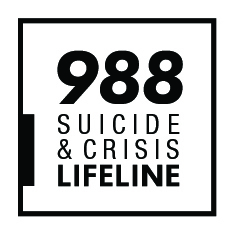Managing your mental health during the holidays
 There’s a popular Christmas song with a title and lyrics that say, “It’s the most wonderful time of the year.”
There’s a popular Christmas song with a title and lyrics that say, “It’s the most wonderful time of the year.”
But for many people, the holidays are anything but wonderful, bringing increased levels of stress, anxiety and depression. It’s a phenomenon known as the holiday blues.
There are, however, some steps people can take to keep their spirits up during the holidays.
Ellen Plummer, LMSW, is the children and family services team leader at West Michigan Community Mental Health. She says people need to be mindful and practice good coping skills around the holidays to keep their mental health in check.
“Being mindful during the holidays is important,” said Plummer. “In this sense, being mindful means being present, enjoying the moment, being in the moment and not worrying so much about what you didn’t do, what you have to do next week, or whether your gift was good enough.”
With the hustle and bustle of things like shopping, cooking and holiday parties, it’s important to set boundaries and know your limits so you don’t get burnt out. Plummer says people need to set realistic expectations for themselves and what they expect from others. She also reminds people that it’s alright to say no when asked to do something.
Family and the holidays
The holidays are traditionally a time when families come together to celebrate what is supposed to be a festive season. But worrying about family conflict can put a damper on the holidays.
“The family component of holidays can be very stressful,” Plummer said. “There are dynamics in every family. You just need to be aware of those dynamics and have a plan in place to take care of yourself if things start to get stressful.”
There may be disagreements among family about behaviors, politics, lifestyle or unhealed family conflict. It seems every family will also have the naysayer who wants to nitpick everything. For these situations, it’s important to understand that you can only control yourself and your own actions. Engaging in these discussions with family may only make things worse. Removing yourself from the conversation or going to a different part of the house may be the best option to avoid compromising your mental health.
Plummer also suggests that people pick and chose which holiday parties they want to go to. You don’t have to go to every family gathering.
Gift giving
Christmas has been a commercialized holiday since the late 19th century. According to the National Retail Federation, Americans will spend an average of $1,047 on gifts this holiday season with total sales topping $700-billion nationwide.
Everywhere you look is another reminder of how marketers are trying to influence consumer spending during the holidays. A good example is the classic movie, “A Christmas Story,” where Ralphie gazes into the window at Higbee’s department store and tries to convince his parents, his teacher and even Santa Claus that a Red Ryder Carbine Action 200-shot Range Model air riffle would be the perfect present.
The pressure of finding the perfect gift and financial stress can turn the holidays into a rollercoaster of emotions. Setting a budget and sticking to it is one of the best things you can do, according to Plummer.
But gift giving shouldn’t be the main focus of the holidays.
“People need to recognize that Christmas is about more than just gifts,” she said. “It means something different to everyone, whether it’s about religion or spending time with loved ones. Giving and receiving gifts can certainly bring people joy, but there’s more to be thankful for than just presents.”
Coping with loss
The holidays can be difficult for those who have lost loved ones over the course of the year. Whether it’s due to death, divorce or another circumstance, the holidays can trigger emotions that can be difficult to cope with.
“Everyone grieves differently,” Plummer said. “What’s found to be helpful is to establish traditions. Figure out how you want to remember loved ones during the holidays so they are still included even though they may not be physically with us.”
Avoid overindulging
It seems that almost every holiday party features a full spread of food and an assortment of alcoholic beverages. This can be a recipe for disaster, especially for people who suffer from substance use disorders, eating disorders and other mental health issues.
“Using alcohol, drugs and overindulging in food is very common during the holidays,” said Plummer. “People need to know themselves and know their own limits. If they have issues with those types of things, they need to have a plan in place to avoid those temptations, whether it’s opting not to go to a party where those things will be available or identifying who your support people will be at the party.”
While holiday parties and gatherings provide a temptation to overindulge, it’s also common for people to use alcohol, food or substances to self-medicate to lessen anxiety associated with the holidays. In these situations, people need to practice mindfulness-based stress reduction skills rather than trying to self-medicate.
Sticking to your routine
The holidays can be hectic and chaotic, but it’s important to try to keep your normal routine. That includes keeping therapy appointments for those who are currently receiving care.
“It’s important all year long, but there’s a lot going on during the holidays so there’s more opportunities for people to miss appointments,” Plummer said. “You need to continue to engage in those activities that balance your mental health and give you support and guidance. You need to take care of yourself first because you’re not going to do anything else well if you don’t take care of yourself first.”
If you are feeling emotionally overwhelmed, having trouble coping or are in crisis, you can call West Michigan CMH’s 24-hour mental health mobile crisis hotline at 1-800-992-2061. Phone coaching will be provided or a team of mental health professionals will respond directly to your home.
 or
or 